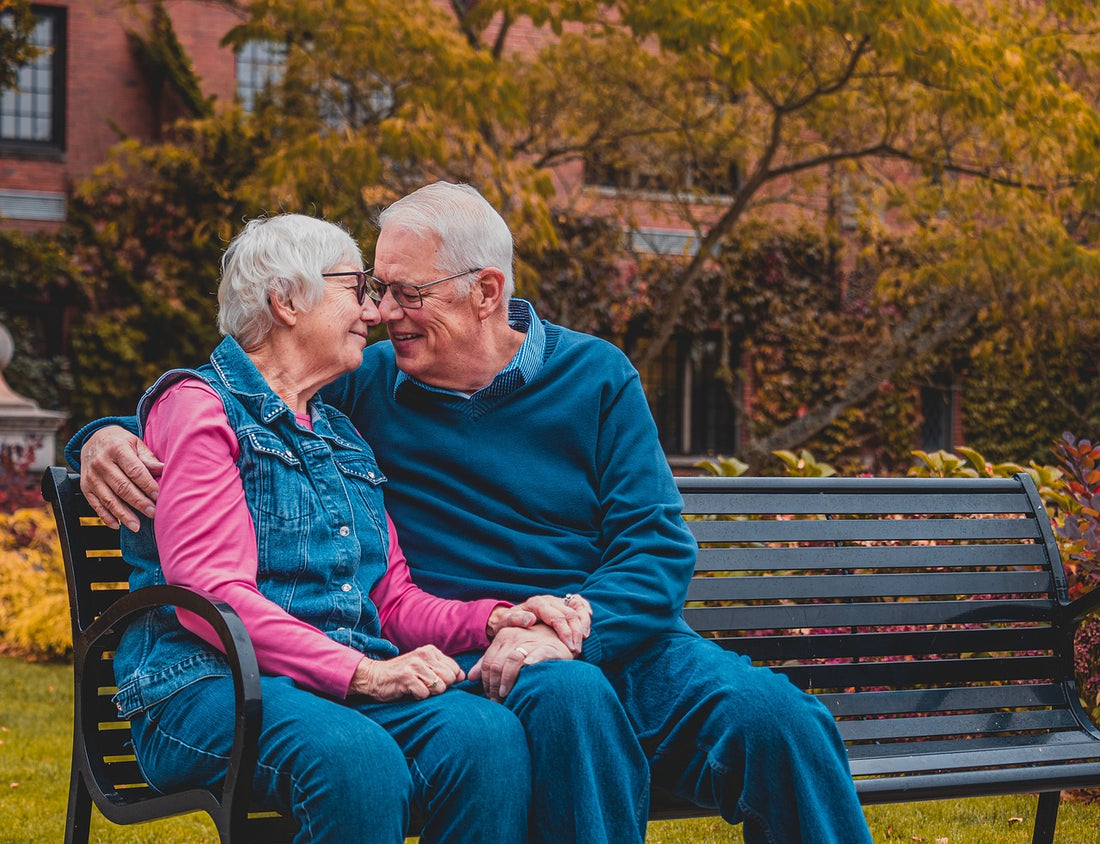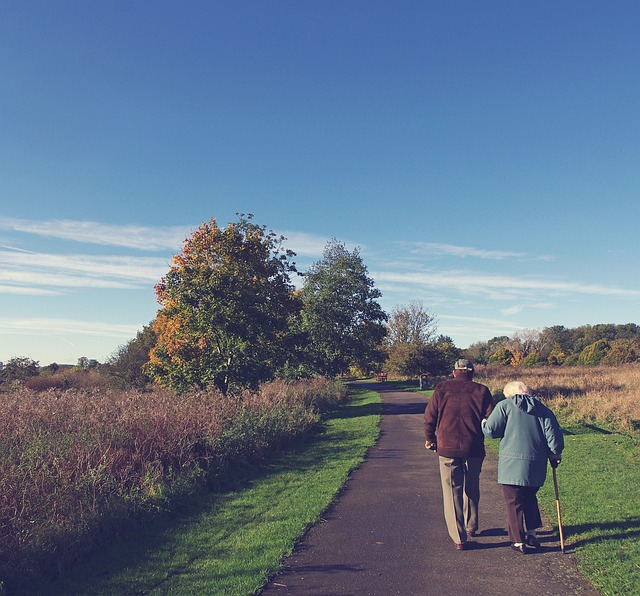
Intimacy and Aging in Marriage: Navigating the Golden Years Together
Addressing Top Questions
-
How does intimacy change as couples age? As couples grow older, the nature of intimacy often transforms. Physical changes, health issues, and shifting priorities can affect sexual desire and physical closeness.
-
However, this doesn't mean the end of intimacy; rather, it signals a time for adaptation and deeper understanding.
-
Can older adults still enjoy a fulfilling sex life? Absolutely. Many older adults find that with fewer distractions and more time together, they can explore different sexual positions, engage in more sexual play, and rediscover each other in new ways.
-
Health issues like erectile dysfunction or vaginal dryness can be addressed with treatment options, ensuring a continued and enjoyable sex life.
-
What role does emotional intimacy play in aging marriages? Emotional closeness becomes increasingly significant in older adulthood.
-
As physical aspects of the relationship evolve, many couples find greater satisfaction in the emotional dimensions of their partnership, experiencing deepened empathy, understanding, and companionship.
As couples journey through life, their relationship inevitably encounters the aging process. Aging in marriage brings both challenges and opportunities, especially concerning intimacy.
It's crucial to understand that intimacy involves not just sexual contact but also emotional closeness and physical affection.

The Evolution of Intimacy in Older Couples
As one ages, bodies change, and so do desires and capacities for intimacy.
Reduced sexual desire, changes in sexual function, and physical health issues like blood pressure concerns or joint pain can impact the sex life of older adults.
However, many find that age-related changes do not diminish the joy of intimacy but rather redefine it.
Physical intimacy may require more creativity. Exploring different sexual positions to accommodate physical problems like chronic pain or trying out new forms of sexual play can keep the spark alive.
For issues like erectile dysfunction or vaginal dryness, treatment options like hormone therapy or vaginal lubrication can offer relief.

The Importance of Emotional Intimacy
Emotional closeness is a cornerstone of intimacy in older adulthood. As sexual activity might become less frequent or intense, many older couples find that their emotional intimacy deepens.
This emotional bond is not only fulfilling but also contributes to overall well-being and mental health.
Maintaining Sexual Health
Sexual health remains an important aspect of a fulfilling sex life. Older adults should be aware of sexually transmitted infections and practice safe sex.
Regular check-ups and open communication about sexual health are key to maintaining a healthy sexual relationship.

Addressing Common Challenges
-
Sexual Interest and Desire: Changes in sexual interest are normal. Couples can adapt by finding new ways to express their affection and exploring different forms of intimacy.
-
Physical Limitations: Age-related physical limitations can be mitigated with adaptations in sexual positions or through physical aids.
-
Chronic Conditions: Managing chronic conditions like heart disease or diabetes is vital for maintaining sexual function and overall physical and emotional closeness.
Enhancing Intimacy
-
Communication: Open and honest communication about desires, fears, and preferences is essential.
-
Exploration: Trying new things in the bedroom, such as different sexual positions or lingerie from collections like EveryLove Intimates, can reignite passion.
-
Date Nights: Regular date nights, perhaps spiced up with items from the Date Night Box, can keep the relationship fresh and exciting.

-
Physical Activity: Engaging in regular exercise together can improve physical health and increase physical and emotional closeness.
-
Therapy: Couples or sex therapy can be beneficial in addressing sexual problems or emotional barriers.
FAQs
Q: Can intimacy still be enjoyable in old age despite physical limitations? A: Yes, many older adults enjoy sex and intimacy by adapting to physical changes.
Tools like lubricants or lifestyle changes such as regular exercise can help manage physical problems.
Q: How can couples maintain intimacy despite busy lives and stress? A: Prioritizing time together, maintaining open communication, and creating fewer distractions can help. Regular date nights or weekend getaways can rekindle intimacy.
Q: Does intimacy always involve sexual intercourse? A: Intimacy is not limited to sexual intercourse. It encompasses a range of expressions, including physical affection, emotional closeness, and shared experiences.
Q: How can we address reduced sexual desire due to aging? A: Open communication, medical advice for hormone therapy or other treatment options, and experimenting with new forms of sexual play and physical closeness can help address reduced sexual desire.
Q: Are there specific concerns for intimacy in the context of chronic illness? A: Yes, chronic illnesses can impact sexual function and desire. Managing the illness, seeking professional advice, and adapting sexual behavior to accommodate health needs are important.
-
How can older people maintain an active sex life and ensure sexual intimacy in their intimate relationship? Maintaining an active sex life as one ages requires open communication and a willingness to adapt. Older couples should focus on what sexual intimacy means to them, exploring and respecting each other's evolving needs and preferences. Regular physical and mental health check-ups, along with a commitment to spending quality time together, can significantly enhance the sexual aspect of their intimate relationship.
-
What role does self-esteem play in achieving sexual satisfaction in romantic relationships? Self-esteem is crucial for sexual satisfaction in romantic relationships. A positive sense of self can enhance one's comfort and confidence in expressing desires and needs, leading to a more fulfilling sexual experience. Couples should support each other in fostering self-esteem, which can be achieved through open communication, understanding, and appreciating each other's bodies and desires.
-
Can an active sex life contribute to reduced stress and better physical and mental health in older couples? Yes, an active sex life can significantly contribute to reduced stress and better overall health. Engaging in sexual activity releases endorphins and other hormones that promote relaxation and reduce stress levels. Moreover, a healthy sex life can strengthen emotional bonds, enhance self-esteem, and contribute positively to both physical and mental health.
-
How important is it to be aware of sexually transmitted diseases (STDs) in maintaining a healthy sexual relationship in older adulthood? Awareness and prevention of sexually transmitted diseases are crucial at any age, including in older adulthood. Despite common misconceptions, older people are not immune to STDs. Practicing safe sex, getting regular health screenings, and maintaining open communication about sexual history and health are key factors in ensuring a healthy and enjoyable intimacy in older relationships.
-
What are some other factors that affect interest in sex and the ability to enjoy intimacy in older couples? Several factors can influence interest in sex and the ability to enjoy intimacy in older couples. These include hormonal changes, underlying health conditions, medications, emotional well-being, the level of emotional closeness in the relationship, life stressors, and the overall quality of the romantic relationship. Addressing these factors holistically can help older couples maintain a satisfying sexual relationship.
-







